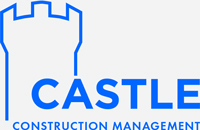Introduction to the Course
At Castle Construction Management, we provide expert coaching in construction management. Our bespoke courses are designed for small businesses and consultancies, ensuring that you receive personalised guidance through our friendly, authoritative approach. We understand the unique challenges faced by smaller players in the construction industry and are here to help you navigate them successfully.

a. Understanding the Construction Project
Before embarking on any construction project, it's essential to consider several critical aspects. Our course delves into the key components that underpin successful project management, including:
Project Scope: Define your objectives, deliverables, and desired outcomes to set clear expectations.
Budgeting and Financing: Learn to account for materials, labour, equipment, permits, and other expenses. We will also explore potential financing sources.
Project Schedule: Develop a comprehensive timeline that outlines activities, milestones, and deadlines.
Risk Assessment: Conduct thorough analyses of site conditions, regulatory requirements, and environmental factors to identify potential risks.
Site Evaluation: Assess the suitability of your construction site and recognise any challenges that may arise.
Design and Engineering: Ensure compliance with building codes, regulations, and industry standards.
Procurement and Material Management: Establish efficient processes for material selection, ordering, and delivery.
Human Resources and Labour: Determine the workforce and skill sets required for your project.
Health and Safety Planning: Prioritise worker well-being and ensure compliance with safety regulations.
Quality Assurance and Quality Control: Implement regular inspections and corrective actions to maintain quality standards.
Environmental Considerations: Adhere to regulations while promoting sustainable practices and green building principles.
Project Management and Documentation: Track progress, manage resources, and monitor costs effectively, along with establishing a robust document control process.
These foundational elements are crucial for effective construction project planning. However, we recognise that every project is unique, and our coaching will help you address specific considerations that may arise.
b. Construction Project Management Tool Bag
In our course, we introduce a variety of essential tools for effective site construction management, including:
Communication on Site: Develop effective communication strategies to enhance collaboration.
Decision Making: Learn how to make informed decisions swiftly.
Gantt Charts: Utilise these visual aids to track project timelines.
Method Statements: Create clear guidelines for tasks to ensure consistency.
Motivating the Workforce: Discover techniques to inspire and engage your team.
Ordering and Delivery of Materials: Streamline the procurement process.
Plant Requirements: Assess and plan for necessary equipment.
Quality Assurance and Control: Implement measures to ensure project standards.
Risk Assessments: Conduct comprehensive analyses to mitigate potential issues.
Workforce Supervision: Learn effective strategies for managing your team on-site.
Our coaching aims to equip you with the skills and knowledge necessary to excel in construction management.
Contact Us
For more information about our bespoke construction management training courses, please reach out to us by emailing or calling. We look forward to helping your business achieve compliance and success in the construction industry!
Quick Links
